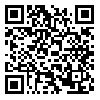دوره 8، شماره 1 - ( 6-1401 )
جلد 8 شماره 1 صفحات 14-7 |
برگشت به فهرست نسخه ها
چکیده: (1522 مشاهده)
Background: Iran is exposed to several kinds of hazards throughout the country. Disasters cause mental health distress among survivors and disaster rescuers. Most psychological symptoms may decrease in time, but they could persist for months or even years in some individuals. Therefore, the present study aimed to explore the consequences of exposure to traumatic events with its components, which are derived from rescuers’ life experiences.
Materials and Methods: A qualitative study based on content analysis was conducted according to Landman and Graneheim approach. Through the purposive sampling method, 17 semi-structured interviews were applied until reaching data saturation. Interviews were transcribed verbatim. In the next steps, data condensing, labeling, coding, and defining categories were conducted.
Results: Based on the experience of the study participants, two main concepts with four categories and 12 subcategories were developed. Two main concepts included regression and resilience consequences.
Conclusion: Emergency departments should be aware of work-related mental health and behavioral problems and provide appropriate support programs to prevent ineffective consequences of incidence scene psychological distress and empower the rescuer’s resiliency.
Materials and Methods: A qualitative study based on content analysis was conducted according to Landman and Graneheim approach. Through the purposive sampling method, 17 semi-structured interviews were applied until reaching data saturation. Interviews were transcribed verbatim. In the next steps, data condensing, labeling, coding, and defining categories were conducted.
Results: Based on the experience of the study participants, two main concepts with four categories and 12 subcategories were developed. Two main concepts included regression and resilience consequences.
Conclusion: Emergency departments should be aware of work-related mental health and behavioral problems and provide appropriate support programs to prevent ineffective consequences of incidence scene psychological distress and empower the rescuer’s resiliency.
| بازنشر اطلاعات | |
 |
این مقاله تحت شرایط Creative Commons Attribution-NonCommercial 4.0 International License قابل بازنشر است. |


